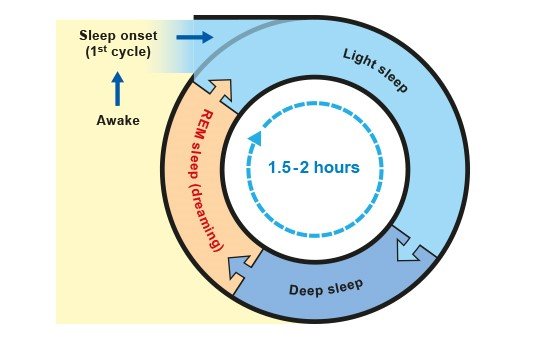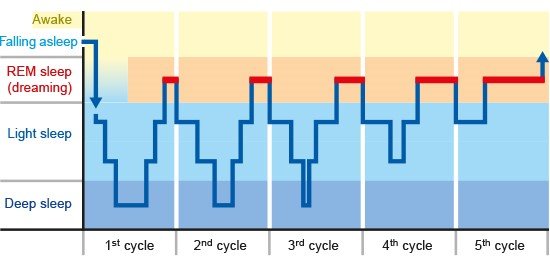What is “normal” sleep?
A good night’s sleep is when you fall asleep easily, do not fully wake up during the night, do not wake up too early, and feel refreshed in the morning. Regularly having difficulty falling asleep or trouble sleeping through the night isn't normal for healthy people of any age. But not everyone needs the same amount of sleep, and quality of sleep is different in different phases of life.
For instance, toddlers need to sleep a lot more than older children and adults do. But most children have adult-like sleep patterns by the time they reach the age of five: They are awake during the day and then sleep through the night. The amount of time spent sleeping slowly decreases until the age of about 80.
Young children and older people sleep more lightly than teenagers and adults do. The length of time spent in deep sleep changes over a person's lifetime.


